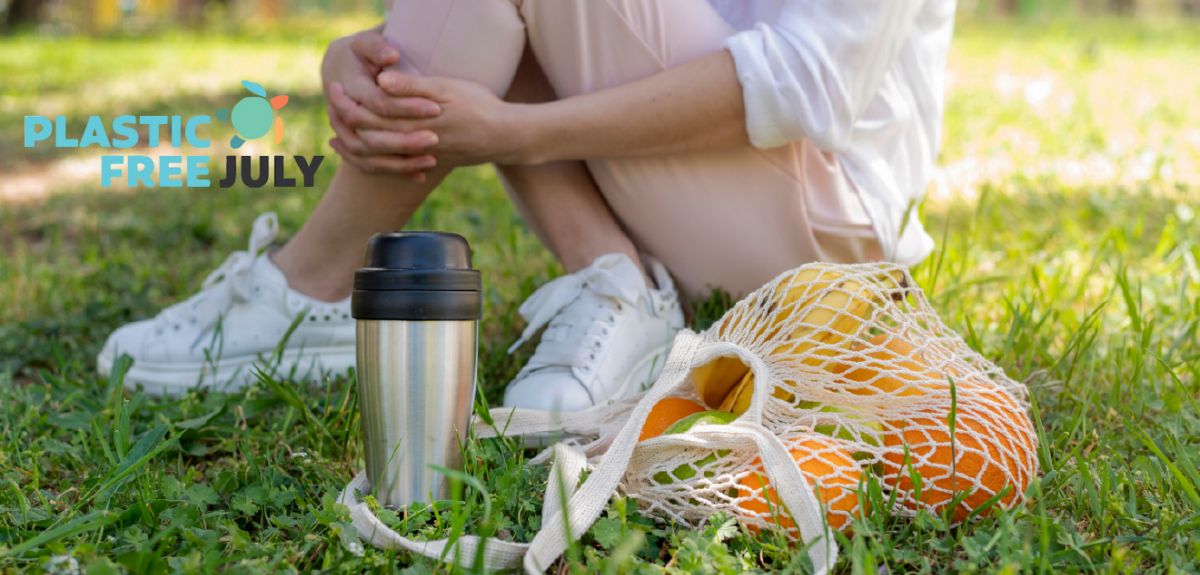
Plastic-Free July: Student Blog
Could you go a month without using any plastic? This year, many of our students have sought to do exactly that, having joined the 250 million around the world attempting a ‘Plastic-free July’. Whether the aim is to cut plastic usage to zero, or simply reducing it in a few areas, individuals and households in our Oxford community have taken on this challenge to adapt their way of living to be greener, and more conscientious.
Megan, a second year History and English student at Balliol, writes about her experience of becoming more conscious of her environmental impact for Plastic-free July, and her tips for making the transition to a greener lifestyle.
"As a student, it can be easy to fall into a hyper-consumerist, “single-use” lifestyle. I have been environmentally conscious since becoming vegan for environmental and ethical reasons at sixteen, but for some reason was largely ignorant to the damaging environmental impact of my plastic use. This all changed in my first year at Oxford. Increasingly disconcerted by the immensity of plastic piling up in my shopping basket, I slowly started making changes.
First steps
I first reduced single-use plastic in toiletries, using plastic-free shampoo, conditioner, and shower gel from Lush (the initial expense is outweighed by the longevity of the products—my ‘naked’ shower gel has lasted me months!), buying a bamboo toothbrush and doing my laundry with compostable eco-nuts. Then, I made sure to carry my KeepCup and a tote bag with me everywhere to avoid disposable cups and plastic bags.
Learning about sustainability
After attending a series of sustainability workshops run by the student social enterprise ‘Green Leaves Groups’, I became more educated on accurately reading recycling symbols, and realised just how much plastic I had been mistakenly putting in the recycling bin. From this point, I became more invested in eliminating plastic from my life as far as possible. I learnt how to make my own bread, stopped buying any fruit and vegetables packaged in plastic, and began buying all my other food from the Oxford Hub’s ‘OxUnboxed’, an amazing zero-waste store located on Little Clarendon St.
What’s next?
I certainly have a way to go, much of my makeup and skincare is plastic packaged, and I could be doing more to influence my family and friends to commit to reducing single-use plastic in their lives. These are all challenges which I am working to overcome this Plastic-Free July.
Tips for reducing your plastic usage
1) Significantly reducing the amount of single-use plastic in your life should be seen as a journey, and not something you can do overnight
I’ve found an approach of ‘progressive extremism’ works best. When I was transitioning to a vegan diet, I was pescatarian for a couple of years, vegetarian for a year, and then vegan. Similarly, if you’re feeling overwhelmed, it’s a good idea to focus on the different areas of your life separately. For example, starting with reducing plastic packaging in toiletries, then moving onto food/ drink and so forth.
2) Watch out for “green-washing”
Lots of companies are capitalising on interest in plastic-free and zero waste lifestyles by repackaging it as an aesthetic, offering you pretty water bottles, Tupperware, tote bags etc. To make sure you don’t consume more in an effort to make a plastic-free swap, ensure you don’t already have that item. This sounds simple, but it's important to keep in mind that refusing unnecessary consumption of any kind is one of the most beneficial things you can do for the planet.
3) Do a personal plastic use audit
Looking up ‘how to go plastic free’ online can be very overwhelming, making you think you need to make loads of irrelevant swaps. So, a good way to get started on your plastic-free journey is to list the different plastic packaged items you use in your life under their sub-headings (e.g. household, toiletries etc). Maybe spend a week just living your life as you would, but with an awareness of your plastic use, recording each item as it comes to you. This audit will allow you to attain focus, identifying the specific areas you need to work on, and specific items to swap for plastic-free alternatives.
4) Research your supermarket options
If you are struggling to find fruit and vegetables out of plastic packaging and/ or don’t live near a green grocer, explore the supermarkets around you - as some are better than others in terms of their plastic-free offerings."
Plastic-free July isn’t just a change for the month, but a way into thinking about how we make our everyday habits and behaviour less wasteful, and more thoughtful, in the long-term. We’d love to hear how you are embarking on this challenge - and any surprises, benefits, or frustrations you might have come across - so please do share your experiences with the sustainability team at [email protected].
See what the University is doing about sustainability.
Find out more about Plastic-Free July
 Student story: Finding space for Kosovo at Oxford
Student story: Finding space for Kosovo at Oxford
 Oxford students shortlisted as McCall MacBain Scholarship finalists
Oxford students shortlisted as McCall MacBain Scholarship finalists
 Student story: My time at Oxford has been deeply transformative
Student story: My time at Oxford has been deeply transformative
 Welfare blog: Dealing with imposter syndrome
Welfare blog: Dealing with imposter syndrome
 Student story: Rowing sabbatical officer
Student story: Rowing sabbatical officer